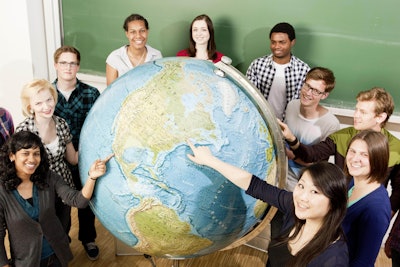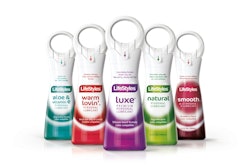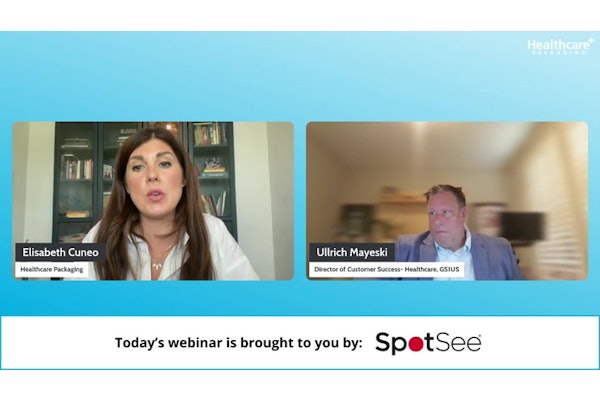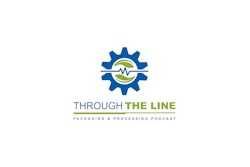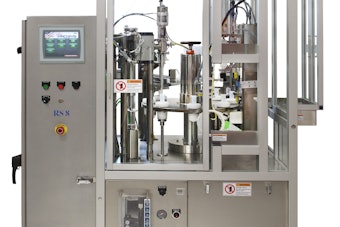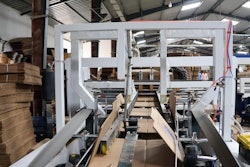The need for global business communications has never been greater, particularly in the healthcare industries where life-critical biologics, pharmaceuticals, medical devices, and combination products often need to be manufactured, packaged, and shipped across multiple locations throughout the world.
Thanks to various electronic technologies, we can communicate with business partners around the world virtually instantaneously. That’s critical throughout the supply chain, but how do we begin to gain a deeper understanding of different cultural needs?
Processing and packaging equipment supplier Bosch Packaging Technology is addressing that very issue. With 4 700 associates in more than 15 countries, Martin Sternberg, head of Human Resources at Bosch Packaging Technology, says, “To ensure an efficient collaboration, intercultural competence is of great importance to everyone. This is about more than just different languages and time zones. Cultural differences also create chances and challenges in daily cooperation.” To meet those challenges, the company offers employees the opportunity to gather knowledge and insight into foreign cultures.
At last June’s Achema 2012 event in Frankfurt, Germany, Friedbert Klefenz, president of Bosch Packaging Technology, addressed the importance of a global presence during a press conference where he said, “We can clearly benefit from the rapid development of emerging economies. But this will only succeed on a long-term basis if we are still there for our customers with support, maintenance, and service, after the machines are sold. In other words, we have to do everything we can to ensure our machines contribute to the success of our customers.
“Our presence builds the entire network of our global resources and expertise. This includes cross-cultural know-how. We primarily work with local employees and learn from them as much as they learn from us. We have turned this valuable experience into a principle. New trainees with bachelor's or master's degrees have at least one assignment outside of [our locations in] Europe. This is our way of raising awareness and understanding for other cultures and markets.”
Klefenz told Healthcare Packaging in a follow-up interview that the company’s financial commitment in this principle provides a return on investment in many ways. “Our employees need to understand cultural differences and how they fit into our company’s philosophy. We have more than 30 global sites developing and producing machinery. This training is unique and provides us with a big competitive difference.”
Personal perspectives
Sharing their cross-cultural experiences were Tanja Riegel, regional sales manager at Bosch Packaging Technology in North America, and Thomas Mauritzen, business development manager, Bosch Packaging Technology in North America.
Riegel works in sales at the Bosch facility in Minneapolis where she plans, organizes, and directs customer-related activities to improve customer satisfaction. She has worked for Bosch for 10 years after growing up in the Crailsheim region in southern Germany, and working in that regional area for Bosch.
She explains, “I started my career with an internship during my studies in Germany. One of my goals was to do an internship abroad. So I applied for a position in Minneapolis. When my internship was completed, my boss offered me a job in Minneapolis and asked me to return after I finished my studies.”
Riegel says she has “not worked for another company that has such a great cross-cultural program to offer.” Yet before starting on this training, she said, “I had concerns about the intercultural differences between the two countries. However, I was well prepared by Bosch. I was also part of the German Students@Bosch program, which aims to support successful interns to start their career at Bosch—and received some great intercultural training classes beforehand.”
Riegel says, “This assignment abroad benefits me personally for life. The experience of living and working abroad for Bosch is a unique opportunity I would not want to miss. My personal horizon was broadened by thinking outside the box and by being more flexible and positive in my professional career. Bosch gains long-term benefits from the intercultural knowledge and capabilities of its employees wherever they are working. I received the chance to work and learn in quite a technical and male-dominated environment—and I would do it again.”
Mauritzen works with sales on complex machine projects and is the liaison between the company’s plant in Minneapolis and headquarters in Waiblingen, Germany. He’s worked for the company for eight years, five in Germany.
He says the company offers “international reach and innovative capacity, and is a global player looking [to benefit] its associates in a new environment and provide the opportunity to gain new experiences in foreign countries. Often there is a need to transfer know-how into newly established sites. Sometimes for personal reasons associates like to go abroad. Whenever it is possible, Bosch supports those intents.”
Mauritzen was hired directly into an international development program at Bosch following college graduation. His three-year trainee program involved one year at the hiring site [for him, the U.S.] and two years abroad at Bosch headquarters. Although admittedly, “nervous to move to a new country with a different culture, work environment, and language,” Mauritzen said he loves traveling, especially in Europe, “so I saw it as a great opportunity. Beyond the three-year trainee program, I stayed in Germany and continued working in Waiblingen as sales manager for capsule filling machines for another two years. The entire time in Germany was a continuous training session on how to adapt and succeed in a different environment.”
For Mauritzen, “The training I received was key in me adapting to the German way of life and to the German work culture. There was a good balance between practical learning on the job and classroom learning through seminars and exchange with fellow trainees in the same situation.”
Bosch Packaging Technology enables its associates to make several additional examples of cross-cultural experiences. For instance, collaboration between locations in Germany and Thailand, and China, provides German trainees and their colleagues in Asia with the opportunity not only to share work experiences, but also develop intercultural and social skills, the kind that will help them navigate an increasingly global packaging community.
--Bosch Packaging Technology supplied the photos shown here, which represent their global intercultural training efforts. Also shown: Tanja Riegel, regional sales manager at Bosch Packaging Technology in North America; and Thomas Mauritzen, business development manager, Bosch Packaging Technology in North America.
